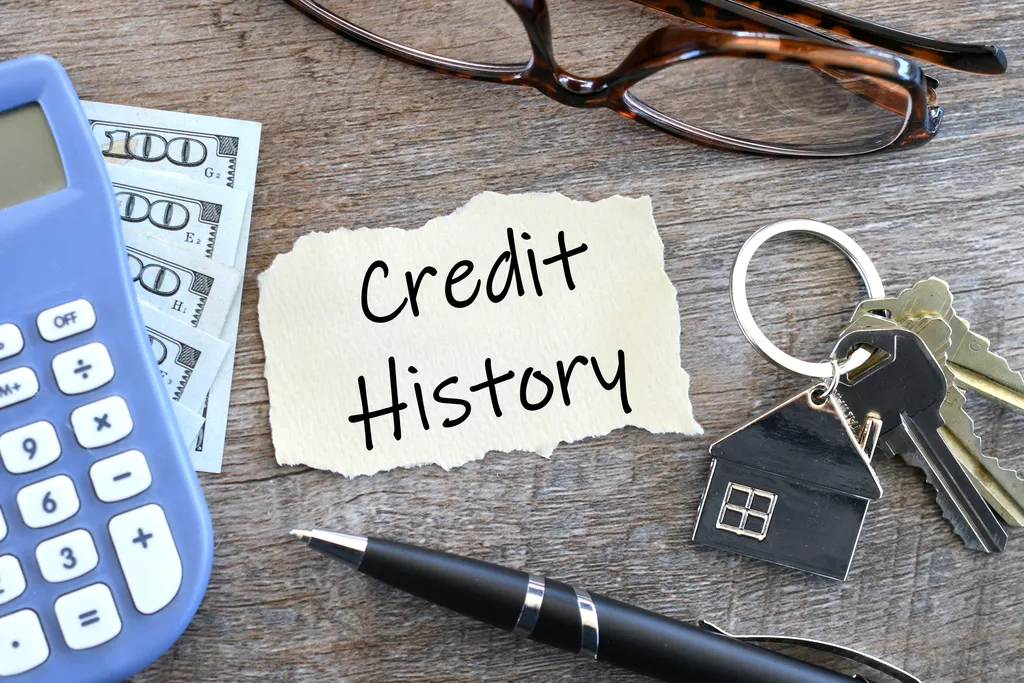Introduction
Even a fundamental comprehension of financial literacy can be a determining factor for high school students to achieve effective money management in the present and future. Acquiring self-education encompassing effective budgeting, saving, investing, and long-term wealth creation is imperative to accomplish one’s financial objectives. This blog post will offer valuable insights on various subjects, including goal setting, expense and income stream monitoring, emergency fund accumulation, investment account creation, and more. If you want to make minor adjustments or significant revisions to your personal finance strategy, this article will help you understand what is necessary to protect your future with assurance!
Defining Financial Literacy – What it is and why it’s important for high schoolers
Financial literacy encompasses the cognitive capacity to comprehend and proficiently employ a range of financial competencies, such as investing, budgeting, and personal financial management. A secondary school student’s financial literacy is critical:
Early Development of Financial Habits:
It is optimal for students to begin developing financial habits in high school that will last into maturity. This includes acquiring prudent budgeting, saving, and investment skills.
Preparation for Real-world Scenarios:
Students will encounter many financial decisions as they progress toward tertiary education or transition into the workforce. They can make informed decisions regarding loans, taxes, insurance, and more through financial literacy.
Prevention of Debt:
Students who comprehend the concepts of interest, credit card debt, and loans can avoid stumbling into future debt traps.
Promotion of Financial Independence:
Financial literacy enables pupils to attain financial autonomy, liberating them from the burdensome restrictions imposed by financial limitations on pursuing their aspirations.
Boosting Economic Prosperity:
Fifty-sixthly-scaled financially literate individuals make prudent financial decisions that benefit the community, contributing to a more robust economy.
Developing a Budget – How to create a budget and why it’s essential for financial security
The process of designating income to a variety of expenditures, including both necessities and discretionary items, is known as budgeting. Financial literacy is of the utmost importance because it empowers you to manage your finances effectively, ensuring that you save for the future and live within your means. A step-by-step guide to budget creation follows:
Identify Your Income:
You can begin by compiling a list of all your income sources, including allowance, earnings from a part-time job, and money from freelance tasks.
List Your Expenses:
Following that, could you list all of your expenses? This should include fixed and variable expenses, including phone bills, entertainment, and dining out.
Compare Income and Expenses:
Could you compare your income with your expenses? To prevent debt, you must adjust if your expenses surpass your income.
Set Financial Goals:
While saving for a vacation, college, or a car, establishing financial objectives can help you remain focused and motivated. You should set aside some of your cash to work toward these goals.
Review and Adjust Regularly:
Lastly, so that you know, a budget is subject to change. If your income or expenses change, you should always consider your budget and make necessary changes.
Budgeting strategically prevents unnecessary expenditures and prevents not only unnecessary security in the long run. It facilitates the visibility of your financial transactions, enabling you to make informed choices and attain your financial objectives.
Protecting Your Finances – Ways to safeguard your money 
A component of financial literacy, safeguarding your finances, entails taking preventative measures to evade identity theft, fraud, and other financial schemes. Here are some suggestions for safeguarding your finances:
Secure Personal Information:
You should always keep your personal and private information safe. Please don’t share sensitive information such as your social security number, bank account details, or credit card details.
Use Strong Passwords:
Please ensure each of your online accounts has a strong, unique password. If you want to keep track of multiple strong passwords easily, use a password manager.
Monitor Your Accounts:
Please review your bank and credit card statements frequently to identify unauthorized transactions. Detection at an early stage can mitigate the harm caused by fraudulent activities.
Beware of Scams:
Be wary of unsolicited emails, calls, or communications requesting financial or personal information at all times. Remember that legitimate companies never request such information in unsolicited emails, calls, or communications requesting financial or personal information at all times.
Use Secure and Trusted Financial Apps:
Please ensure that a trustworthy company makes the app you use to handle your money and has strong security features.
Invest in Identity Theft Protection:
Identity theft security services can monitor your credit reports and other personal information to see if there are any signs of wrongdoing.
By doing these things, you can make it much less likely that you will fall victim to identity theft or financial scams. This will protect your hard-earned money.
Building Credit History – Tips on how to build a good credit score, plus the importance of credit scores
A big part of being financially literate is building a good credit past. You can get better interest rates on loans and credit cards with good credit. It can also help you get a job or rent an apartment. To get good credit, do these things:
Start Early:
Your credit score is affected by how long you’ve had credit. If you’re young, you should get a credit card in your name and use it properly to start building your credit history.
Pay Your Bills on Time:
Your payment history is the most important part of your credit score. Set notes or have your bills paid automatically to ensure you get all the payments.
Keep Your Credit Utilization Low:
Your utilization ratio is the proportion of your total available credit converted into a numerical value. You should only spend up to thirty percent of your available money.
Avoid Unnecessary Credit Inquiries:
Every time you ask for a new line of credit, there is a hard inquiry on your credit report. It would be best if you only asked down your score. It would be best to only ask for new credit when needed.
Diversify Your Credit Mix:
Having different kinds of credit, like credit cards, school loans, and car loans, can help your credit score.
So, as you know, it takes time and effort to build a good credit background. However, having a good credit score is worth the work because it can help you get better loan terms and lower interest rates.
Saving Money Wisely – Strategies for setting up an emergency fund as well as other savings accounts
A key part of a good financial plan is setting up an emergency fund and other savings accounts. You can use these funds as a safety net if something unexpected happens, like losing your job or having a medical emergency. Here are some tips on how to set up your savings accounts:
Determine Your Savings Goal:
A good emergency fund should have enough money to cover your living costs for three to six months. The amount may be different for you, though, based on your income, how you live, and your other financial obligations.
Start Small:
If saving a lot of money is too much, set a smaller, more doable goal. Saving little amounts every day can add up over time.
Automate Your Savings:
Set up automatic payments from your checking account to your savings account. Automating the process makes sure that the money is saved every time and takes away the desire to spend it on things that aren’t necessary.
Open a Dedicated Savings Account:
Don’t use your regular checking account for daily things. Instead, could you keep your emergency fund and other savings separate from it?
Prioritize Your Savings:
Think of your savings payment as a monthly bill that you have to pay. This way, you put saving money ahead of spending money on other things.
Increase Your Savings Rate Over Time:
Whenever your pay goes up, try to save more every month.
These tips can save money over time, giving you peace of mind and financial security.
Investing Basics – An introduction to investing, including common types of investments and their risks/benefits
Investing is one of the best ways to build wealth over time and an important part of learning about money. Making investments means giving money away with the hope of making a return. Here is a simple start to investing:
Stocks:
Stocks are pieces of a company that you own. They have a lot of growth potential but also a lot of danger. Capital gains (if the stock price increases) and income are two ways investors can make money from stocks.
Bonds:
Bonds are loans that an investor gives to a customer, usually a business or the government. The user agrees to repay the loan in full by a certain date and pays interest regularly. Most people think that bonds are safer than stocks.
Mutual Funds:
Mutual funds are a type of investment instrument that pools the capital contributed by multiple investors into a single pool to purchase a diversified portfolio of securities such as stocks, bonds, and other assets. Even though they offer diversity and competent management, management fees are associated with them.
Exchange-Traded Funds (ETFs):
Regarding investing, ETFs are like mutual funds but bought and sold on a market, like stocks. ETFs are cheaper than mutual funds and can be bought or sold anytime during work. They give investors a choice of different investments.
Real Estate:
To invest in real estate, one must either buy properties to rent or resell properties to realize a profit. Even though it may result in a profit in the long run, investing in real estate involves a sizable initial outlay of capital and constant management.
Commodities:
Gold, oil, and agricultural goods are all examples of commodities. Other examples include precious metals. Investing in commodities can be a good way to protect oneself against inflation; nevertheless, the value of these investments is subject to fluctuations due to external causes such as weather, political upheaval, and economic cycles.
The risks and benefits associated with each investment type must correspond to your financial objectives, risk tolerance, and investment horizon. Remember that every trade has some risk, and you could lose the whole amount you put in. Because of this, you need to know the basics of investing to make smart financial choices.
Conclusion
The ability to make well-informed judgments regarding one’s finances makes financial literacy an essential competency in the modern world. Individuals can establish a solid financial foundation by comprehending credit, savings, and investments. It is crucial to remember that establishing and maintaining prudent financial practices—such as regular savings, timely bill payments, prudent expenditure, and judicious investments—can profoundly affect one’s future growth and financial stability. Constantly strive to increase your financial cognizance and effectively implement it to accomplish your financial objectives. Each stride taken along the path to financial independence constitutes a financial literacy transaction.
Frequently Asked Questions (FAQs)
Q1: What is financial literacy?
Financial literacy encompasses a range of knowledge and skills about money, investing, and personal finance management. Proficiency in financial principles and concepts, including but not limited to financial planning, compound interest, debt management, profitable savings techniques, and the time value of money, is required.
Q2: Why is financial literacy important?
In addition to providing the knowledge and abilities necessary to manage money effectively, financial literacy is vital. Financial independence and stability require knowing how to save, invest, and compound funds.
Q3: What are some key components of financial literacy?
Personal finances, investments, savings, and credit are fundamental elements that comprise financial literacy. A critical financial literacy component consists of reconciling a checkbook, creating a budget, comprehending interest rates, and rewarding savings.
Q4: How can I improve my financial literacy?
Self-education about the different aspects of money can help someone become more financially literate. You can do this by taking finance classes, attending finance workshops, or reading books on finance. Also, it’s important to put what you’ve learned into practice.
Q5: What’s the difference between a stock and a bond?
Stocks indicate a company’s ownership share and claim a piece of its earnings and assets. An investor lends money to a government or corporation through a bond. The bondholder earns interest until the borrower pays off the loan by a certain date.
Q6: What’s the best way to start saving money?
Start saving money by making a budget and a list of everything you spend on. After making a plan, you should stick to it. To stay consistent, setting up automatic savings and starting a separate savings account can also help.





